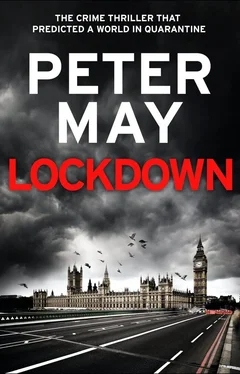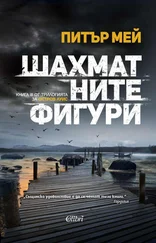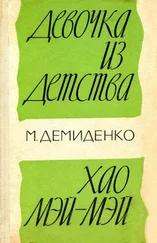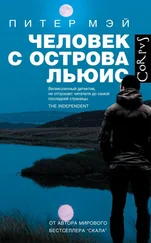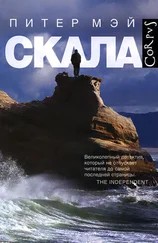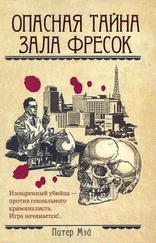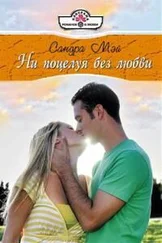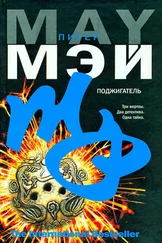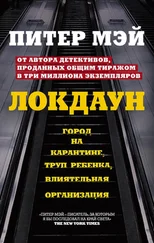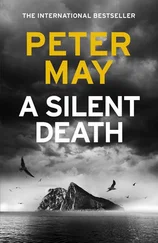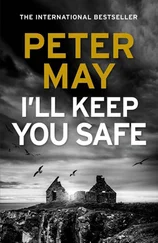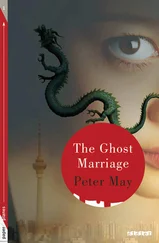MacNeil looked at her. ‘Isn’t there a danger of infection?’
‘The flu?’ She shrugged. ‘I doubt if I’ll catch anything. I’ve been exposed to so many infectious diseases, Mr MacNeil. There are so many antibodies floating around my system, you could probably immunise the whole of London with a few pints of my blood.’ She shook her head. ‘I spent most of last year in Vietnam, chasing down cases of bird flu, trying to establish if there were any instances of human-to-human transmission. I didn’t find any, but I came in contact with most of the victims. We decided to do blood tests on some of the relatives. And in a handful of cases we found that they had antibodies in their blood. It was like they’d had the flu, but without symptoms. Which gave us hope that maybe it wouldn’t be the killer we all feared. We were wrong, of course. But then we tested my blood, and I had the antibodies too. Weird, huh?’
‘You said you didn’t find any cases of human-to-human transmission.’
‘ I didn’t, no. But others did. The first widely accepted case was in Thailand. A family cluster in Kamphaeng Phet, about five hours north of Bangkok. They did some crude modelling on what would have happened if the transmission had been efficient. In the twenty-one days it took them to get up there, there would have been six hundred cases. Ten days after that, it would have been six thousand. That’s why we were so worried, Mr MacNeil. With efficient transmission, and a mortality rate of seventy to eighty per cent, the death toll worldwide would have been unthinkable. You’ve heard of the Spanish Flu?’
MacNeil nodded.
‘The worst pandemic in human history. Killed more than fifty million people in 1918. It had a mortality rate of less than two per cent.’
‘I thought the Plague was worse than the Spanish Flu,’ MacNeil said.
‘It killed more people, certainly. But it took a few hundred years to do it. The Spanish Flu did its work in a matter of months.’
They left Choy’s room and went into the front bedroom.
‘The thing is,’ she said, ‘we were so sure that if the bird flu was going to be the source of the next pandemic, then it was going to start in south-east Asia and gradually spread to the rest of the world. That’s why we concentrated all our efforts there. It would have reached London in the end, of course. But no one thought for a minute that this is where it would start.’
The front bedroom was a big room, with bay windows looking out on to the street. But blinds had been drawn to keep out the light, along with prying eyes. There was a large double bed which had not been made up since the last time it had been slept in. The pillow on the left side remained undisturbed, as if there had only been one occupant. In the drawers and cupboards, there were only men’s clothes. No perfume or hairbrushes or make-up in the en-suite bathroom. If Mr Smith’s wife had spent any time here at all, it was clear she had left some time ago.
Dr Castelli watched as MacNeil searched methodically through the room. ‘The figures the government puts out,’ she said. ‘Crap! They’re much worse.’
‘How much worse?’
‘Well, the population of Greater London’s what, about seven million? Just do the math. A quarter of the population will get it. That’s about 1.75 million. Around three-quarters of them will die. That’s just over 1.3 million. Dead. No way back. Gone forever.’
MacNeil turned and looked at her in the ghostly yellow glow of the torch. It was clear that she thrived on statistics. ‘Numbers aren’t people, Dr Castelli. And people aren’t numbers.’ But he knew that’s just what Sean had become. A number, another faceless victim, fodder for the furnace.
Something in his tone made her look at him quizzically. ‘Was it someone very close?’ she asked after a moment.
‘My son.’
‘I’m sorry.’
‘Yeah.’ He turned towards the door. ‘Let’s go downstairs.’
Most of the black and cream wall units in the kitchen were empty. A few cans, and several packets of dried food — noodles, spaghetti, sugar — was all MacNeil could find. The refrigerator contained a collection of half-used jars of sauce and olives and mayonnaise. There was an inch of milk left in a plastic bottle. MacNeil sniffed it and recoiled from its sour smell. He looked for the date. It was nearly two weeks beyond its use-by. A conservatory bay looked out from the kitchen on to the back garden. There was a small breakfast table in it, and two chairs. Perhaps Mr and Mrs Smith had not been in the habit of taking breakfast with their daughter. There were glass doors leading through to the main conservatory which was dominated by a large glass dining table with upholstered wrought-iron chairs. French windows opened into the living room.
‘What are you looking for, Mr MacNeil?’ Dr Castelli asked.
He shrugged. ‘I don’t know. What about you? What was it you thought you were going to find in here?’
‘Oh, I imagine like you, I’ll probably know when I see it. But anything that might give me an insight into where she caught her flu.’
MacNeil walked into the conservatory and she followed him through. He flashed light across the tabletop. It was littered with papers, documents and letters. All in French. A strip of paper fluttered to the floor as he lifted a letter to try to read it, but it was a long time since he had failed his French O level. It bore the Omega 8 letterhead, the same as the ones in the study.
Dr Castelli stooped to retrieve the strip of paper. ‘You’d better have a look at this,’ she said as she stood, and MacNeil turned to train his torch on it. It was a strip of passport photographs. There were three of them. The fourth had been cut off, presumably for use in a passport. In two of them, a little Chinese girl with a horribly disfigured upper lip was attempting to smile for the camera. Her hair looked as if it had been cut with pinking shears, and she wore an ugly pair of tortoiseshell-rimmed glasses. In the first, she was looking off, camera right, a perplexed expression on her face, saying something to someone just out of shot. So this was Choy. The bag of bones he had been called out to look at just nineteen hours ago on a building site near Westminster. This was the head that Amy had re-animated in her warehouse attic. And she had achieved a fair likeness.
‘Is this her?’ asked Dr Castelli.
‘Probably.’
‘Why can’t you be certain?’
‘There’s nothing left of her but bones, Dr Castelli. She was stripped clean. Apart from a facial approximation made from her skull, we don’t really know what she looked like.’ He looked at the photographs again. The cleft lip was unmistakable. ‘But it’s a pretty good bet.’
He slipped the passport photographs into a plastic evidence bag and filed them away safely in an inside pocket, and they went back out into the hall.
A couple of days’ mail lay on the floor beneath the letter box. A wad of unopened letters was piled untidily on the hall stand. Dr Castelli leafed through them. She made a grunting sound. ‘Half of these are from me. He didn’t even bother to open them. No wonder I didn’t get any response.’
‘Why were you writing?’ MacNeil said. ‘And what led you here in the first place?’
Dr Castelli let out a long, weary sigh of what sounded like resignation. ‘I’m almost certain that the pandemic started at an outdoor activity centre for London schools in Kent. Back in October, during the mid-term break. Sprint Water Outdoor Centre. There were thousands of kids from London down there for the week, supervised by their teachers. It’s a residential centre. You know the sort of thing. They have sailing and canoeing and rock-climbing. There are team-building events, and some of the students take part in the Duke of Edinburgh award scheme. They spend some of the time under canvas, they have campfires. The one thing all these kids have in common is that they’re in each other’s faces the whole time. Living in each other’s pockets. In dormitories and dining halls and day-trips on buses. A perfect breeding ground for disease.’
Читать дальше
